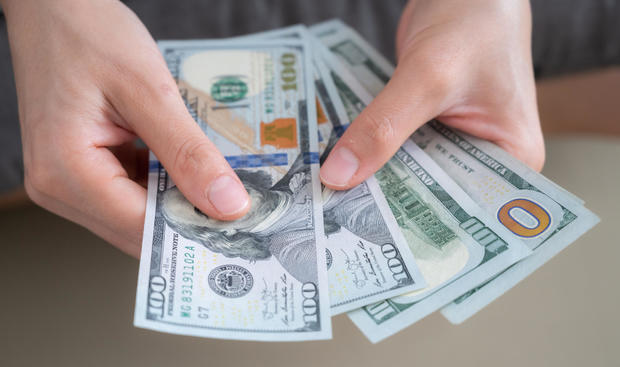How much interest would a $5,000 CD earn in 2 years?
Certificate of deposit (CD) accounts are always a smart way for savers to protect and grow their money. And they've become a critical way to do so in recent years. With inflation at its highest level in decades and interest rates designed to combat it elevated as well, returns on CDs surged from around 1% in 2020 and 2021 to 4% to 5% right now. With the right term and deposit amount, savers could potentially earn hundreds and even thousands of dollars in interest.
But the rate climate is changing again.
Inflation has fallen significantly from the plus-9% range it was at in 2022 to just under 3% now. And the federal funds rate will soon be cut, possibly multiple times before the end of 2024. CD interest rates, then, will soon fall as well. Savers who want to lock in today's high rates while they're still available — and keep them for an extended period — should turn to long-term CDs, now.
To effectively do so, they should make sure to only deposit as much as they're comfortable parting with the full CD term or risk having to pay an early withdrawal penalty to regain their funds. They should also calculate their potential earnings before acting to make sure it's truly worth opening now. So, how much interest would a $5,000 CD earn in a long-term, 2-year CD? That's what we'll calculate below.
See how much interest you could be earning with a top CD here now.
How much interest would a $5,000 CD earn in 2 years?
Rates on 2-year CDs, while not quite as high as what's available with shorter terms, are still competitive. Depending on the lender used, savers can secure a rate of 4.50%, 4.65% or even 4.75% right now. Here's how much interest a $5,000 CD would earn at those rates:
- 2-year CD at 4.50%: $460.12 for a total of $5,460.12 after two years
- 2-year CD at 4.65%: $475.81 for a total of $5,475.81 after two years
- 2-year CD at 4.75%: $486.28 for a total of $5,486.28 after two years
While the above gains are significant, they may not be quite as high to justify parting with $5,000 for two years. If you double your deposit, however, your returns will double as well. For context, here's how much you could earn with a $10,000 deposit instead:
- 2-year CD at 4.50%: $920.25 for a total of $10,920.25 after two years
- 2-year CD at 4.65%: $951.62 for a total of $10,951.62 after two years
- 2-year CD at 4.75%: $972.56 for a total of $10,972.56 after two years
So if you want to earn hundreds of dollars with little risk, consider depositing $5,000 or $10,000 into a 2-year CD now while rates are still high.
Don't forget taxes
While CD interest rates are high and savers can earn significant amounts of money by opening an account, it won't come tax-free. Interest earned over a specific threshold will need to be reported when filing your tax return, though you may be able to defer paying taxes on the account to a later date. You may also be able to benefit from certain tax advantages if you open a CD as part of your retirement portfolio. So contact a trusted financial advisor or accountant to determine your liability before getting started, particularly with CDs that last multiple years.
The bottom line
A $5,000 deposit into the right 2-year CD could produce a return between $460 and $486 right now, and if you double your deposit, you'll double your return, too. This is a smart way to earn guaranteed interest in any economic climate, but with rate cuts on the horizon, it's a particularly strategic way to do so right now. Just be sure to account for any tax implications so you know exactly what to expect when it comes time to file your return.
Have more questions? Learn more about your current CD options online now.




